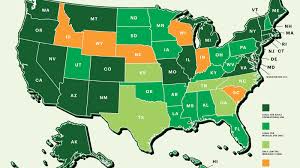Weed Legalization, In recent years, weed legalization has become a focal point in political and social discussions around the world. As more regions consider or implement policies to decriminalize or legalize cannabis, the debate surrounding its benefits and drawbacks intensifies. This article delves into the implications of weed legalization, examining its effects on society, the economy, and public health.
Economic Benefits
One of the most discussed aspects of weed legalization is its economic impact. Legalizing cannabis creates new business opportunities and generates significant tax revenue. In states like Colorado and California, legal weed markets have produced billions of dollars in sales and provided substantial tax income that supports public services. These funds often contribute to education, healthcare, and infrastructure projects, showcasing the potential economic advantages of a regulated cannabis industry.
Additionally, legalization can stimulate job creation. From cultivation and distribution to retail and ancillary services, the cannabis industry has created thousands of jobs. This economic boost can be particularly beneficial in areas with high unemployment rates, offering new career opportunities and contributing to local economic growth.
Public Health and Safety
The public health implications of weed legalization are multifaceted. On one hand, legalizing cannabis can lead to increased access to safe, regulated products, reducing the risks associated with illicit drug use. Legal markets ensure that cannabis products are tested for contaminants, which can mitigate health risks and provide consumers with more reliable information about potency and quality.
However, concerns about potential negative health outcomes persist. Increased cannabis use might lead to higher rates of dependence or mental health issues for some individuals. Public health campaigns and educational programs can play a crucial role in addressing these concerns, helping individuals make informed decisions about cannabis use.
Legalization can also impact road safety. Studies on the effects of cannabis on driving have produced mixed results, but there is evidence suggesting that impaired driving due to cannabis use can increase accident rates. Implementing strict regulations and effective testing methods for impaired driving can help address these challenges.
Social Implications
Weed legalization has the potential to reduce the strain on the criminal justice system. Decriminalizing or legalizing cannabis can alleviate the burden on law enforcement and reduce the number of individuals incarcerated for non-violent drug offenses. This shift can contribute to a more equitable legal system and allow resources to be redirected toward addressing more serious crimes.
Moreover, legalization can contribute to social justice by addressing disparities caused by the war on drugs. In many regions, marginalized communities have been disproportionately affected by cannabis-related arrests and convictions. Legalization can provide opportunities for expunging past convictions and creating pathways for affected individuals to participate in the legal cannabis industry.
Challenges and Considerations
Despite the advantages, weed legalization also presents challenges. Regulatory frameworks need to be carefully designed to balance market growth with public safety. Issues such as product labeling, advertising, and distribution must be managed to prevent misuse and protect consumers.
Moreover, the federal status of cannabis can create complications in regions where legalization is not yet implemented. In countries like the United States, where federal and state laws may conflict, navigating the legal landscape can be complex for businesses and consumers alike.
Conclusion
Weed legalization represents a significant shift in public policy with wide-ranging implications. While the potential benefits—such as economic growth, reduced criminal justice burdens, and safer access to cannabis—are compelling, it is essential to address the associated challenges thoughtfully. As more regions consider legalization, ongoing research and dialogue will be crucial in shaping effective policies that maximize benefits while mitigating risks.
You Might Also Like These:



